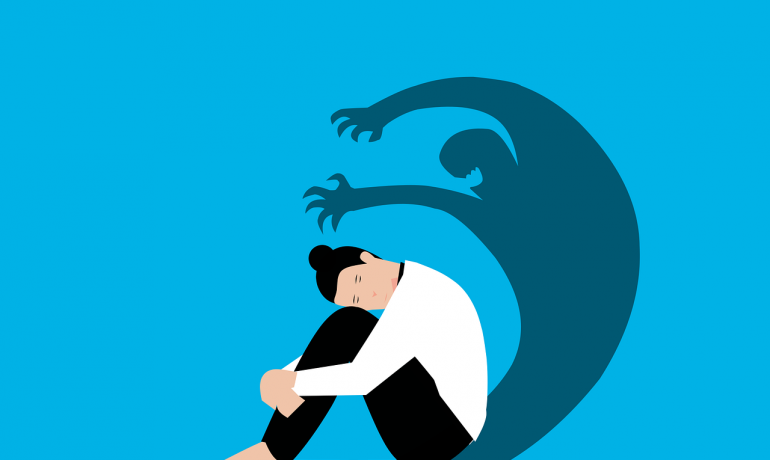We have noted changing attitudes and behaviours of different generational cohorts since we first produced our Drivers of Change document back in 2017. We noted then that
“Generation Z smoke less, drink less alcohol and have less under-age sex. On the other hand they are more likely to be obese, and experience increased mental health issues as the use of social media becomes increasingly ubiquitous.”
But also
“A BBC documentary explored views of Generation Z. They may be viewed as shallow digital natives by older generations, incapable of real world friendships, but they see themselves as hardworking, entrepreneurial and about to change the world for the better.”
As time has moved on, we are indeed seeing evermore increased mental health issues, notably anxiety and depression. ![]()
In the UK, a Resolution Foundation report reported that “34% of people aged 18 to 24 reported symptoms of mental disorder, such as depression, anxiety or bipolar disorder in 2021-22” (up from 24% in 2000) and that the number of young people who are workless due to ill-health has more than doubled over the past decade.”
This pattern appears to be replicated across the English speaking world.
One theory is that, as this data is based on self-reporting, the effect is due to a greater openness and less stigma about mental health issues amongst that generation. An argument against that is that rates of self-harm are also increasing.
![]()
Now in a new book, The Anxious Generation, Jonathan Haidt argues that there are two main explanations:
- The decline of outdoor, unsupervised social play as adults increasingly become fearful for children’s safety meant that children no longer explored the world and built confidence in their abilities
- The ubiquity and high use of smartphones and social media which leads to atomisation and unrealistic comparisons, being bullied and harassed or encountering harmful content.
Haidt suggests that the correlation between smartphone use and poor mental health is very close – girls who spent more than five hours a day on social media were three times more likely to become depressed than those who didn’t use it at all.
Whilst Haidt’s theory is certainly plausible and may be recognised by many parents, it is based on correlation rather than proof of causation and there are alternative explanations to the trends. For a start, it’s quite possible that depressed people spend more time online, so the correlation works the other way.
There is a sense that Haidt’s theory is the latest in a long line of scare stories about new technology – video games, TV, radio and even novels have all in their time been blamed for perceived decline in standards and behaviour.
Then there is the world Gen Z inhabits.
- Research back in 2017 showed that 14-year-olds from better-off families were less likely to have high levels of depressive symptoms compared to their peers from poorer homes.
- They are generally experiencing more limited economic prospects – by 2020 52% of young adults were living with their parents: “boomerang children” and the chances of home ownership declined.
- The failure to properly address the climate change crisis may be inducing a fatalistic view of the future. More than 80 per cent reported being ‘concerned’ or ‘very concerned’ about climate change, with many revealing they felt anxious over the issue with overwhelming distress about future climate disasters and the continuing fate of humanity and the world.
- The 24-hour news cycle highlights and amplifies disasters and threats increasing parental concerns.
With Covid, Trump and Brexit, young people are showing an even greater degree of helplessness and hopelessness. They can’t afford a house or even rent, their world is at war and boiling away, and their countries are run by the old and the far right. Our view is that this is not primarily due to social media but to the feeling that their future has been captured by the old, who have been given every opportunity in their lives but who are now protecting themselves at the expense of the younger generation. Anxiety and depression are natural responses to these circumstances.
Haidt argues that these factors don’t correlate with the increased incidence of poor mental health as well as his theory; that previous generations suffered from global challenges too (threat of nuclear war, recession etc).
We are not arguing that we should ignore the effects of social media and smartphones. To propose that governments should legally assert that tech companies have a duty of care to young people, that the age of internet adulthood should be raised to 16, and that companies forced to institute proper age verification is perfectly reasonable. However, it is by no means clear that the mental health challenge is then completely sorted.
Our approach is to give young people a sense of hope and agency by helping them create their own futures for themselves – because if they do not make their future, the old will make it for them.
Written by Huw Williams, SAMI Principal
The views expressed are those of the author(s) and not necessarily of SAMI Consulting.
Achieve more by understanding what the future may bring. We bring skills developed over thirty years of international and national projects to create actionable, transformative strategy. Futures, foresight and scenario planning to make robust decisions in uncertain times. Find out more at www.samiconsulting.co.uk.
If you enjoyed this blog from SAMI Consulting, the home of scenario planning, please sign up for our monthly newsletter at newreader@samiconsulting.co.uk and/or browse our website at https://www.samiconsulting.co.uk
Featured image by Mohamed Hassan from Pixabay


